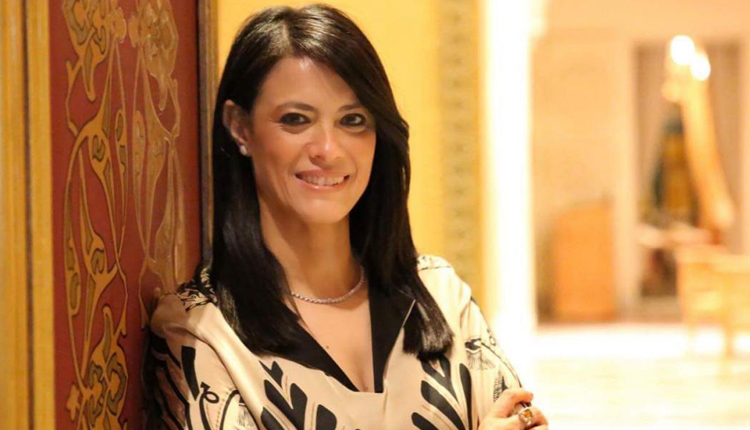Egypt’s Al-Mashat, global leaders discuss raising funds to fight coronavirus
Egypt’s International Cooperation Minister Rania Al-Mashat discussed available financing options and the fallout of the spread of the novel coronavirus during a videoconference meeting with representatives from regional and global organisations in Egypt including the World Bank Group and the IMF.
The meeting, which also tackled advancing future economic cooperation with Egypt, was also attended by representatives of the UN agencies, African Development Bank, European Bank for Reconstruction and Development, Islamic Development Bank Group, Arab Fund for Economic and Social Development, USAID, Japanese International Cooperation Agency, French Agency for Development, European Investment Bank, German Development Agency along with Ambassadors and heads of economic cooperation in embassies for numerous bilateral development partners.
The meeting was called by the ministry with the aim of “creating a platform to discuss the immediate response of international financing institutions to combat the spread of the coronavirus,” the ministry said in a statement Sunday. It is also intended to develop an action plan to fight the pandemic in line with the country’s priorities, it added, Ahram Online reported on Sunday.
Al-Mashat said the macroeconomic implications of the deadly virus include a potential deficit in the balance of payments, adding that global disruptions to supply chains and a slump in demand, tourism and trade would add “financial pressures” on Egypt’s economy.
The minister said Egypt’s macroeconomic policy responses including fiscal, monetary structural measures are intended to “flatten the recession curve: as recommended by the World Bank.
The government has adopted a simplified fast-track procedures to approve international financing necessary for fighting the coronavirus outbreak, she said.
The country has introduced a series of fiscal and monetary measures aimed at softening the financial impact on households and the private sector to mitigate possible slowdown in economic activities, Al-Mashat added, stressing the possible impact of the COVID-19 on the sustainable development goals.
Al Mashat highlighted efforts Egypt has stepped up to enhance infection prevention and identify alternative mechanisms for testing patients. These include the establishment of 27 laboratories across the country, with a plan to add an additional four university laboratories, meaning the country now has the capacity to conduct up to 200,000 tests.
Egypt has designated eight isolation hospitals with a capacity of 2,000 beds, half of which are ICU beds, and 400 ventilators, and other field hospitals have been set up for mild and asymptotic cases.
The World Health Organization (WHO) has hailed Egypt’s efforts and “strong disease surveillance system” and said last week that the country still has has a real opportunity to stop the transmission.
The minister also highlighted Egypt’s efforts to switch to e-learning after the suspension of classes in schools and universities amid the coronavirus crisis, which she said was supported by the World Bank. Egypt launched a new digital library available for free to every Egyptian student with learning material, digital objects, extracted from EKB and sorted out/assembled for G1-G12 students in both Arabic and English, she said.
“The education ministry decided to deploy a customized version of the Edmodo Learning Management System at around 55,000 schools and train teachers to create their own virtual classrooms and invite their own students (and possibly their parents as well),” she said.
The coronavirus crisis will speed up structural reforms linked to social protection and social safety nets as well as the informal sector and financial inclusion as demonstrated by the recent directives issued by the central bank, the minister said,
The government also announced it would offer one-off 500 Egyptian pounds ($31.7) cash handouts to informal workers registered on the Ministry of Manpower’s database. Over one million individuals working in construction, agriculture, fishing, plumbing and other professions have registered so far.
The central bank has also ramped up its push towards financial inclusion and digital transformation during the coronavirus crisis, cancelling commissions and fees on money transfers in local currency, increasing daily limits of mobile wallets to 30,000 Egyptian pounds ($1,900), and issuing pre-paid payment cards free of charge for six months, the minister said.
Other measures include encouraging the use of QR codes and request-to-pay method and the automatic enrollment to internet banking services, she added.
On the social protection efforts, Al Mashat said 60,000 households have been added to the government’s cash transfer program Takaful & Karama and an extra 100,000 will be added in the near future.
The program’s investment has also been raised to 19 billion Egyptian pounds ($1.2 billion) from 18.5 billion pounds in the financial year year starting in July.
Payments to women community leaders in rural areas have been increased from 350 pounds to 900 pounds per month to ensure gender equity.
World Bank Country Director, Egypt, Yemen and Djibouti Marina Wes, pledged support to Egypt in the fight against coronavirus, while praising the ministry’s action to hold the conference.
“The World Bank stands ready to support Egypt in its effort to confront the immediate health emergency and mitigate the socio-economic impacts of the COVID-19 pandemic, especially for the most vulnerable”, she was quoted by the ministry as saying.
The International Finance Corporation (IFC), a World Bank Group member, said the coronavirus crisis poses a major challenge for Egypt’s private sector, the main driver of economic growth and employment.
“Lives, businesses, jobs, and livelihoods are at risk. IFC is working closely with clients and partners in Egypt to help mitigate the already evident impacts of COVID-19 crisis and support businesses as they continue to operate and retain staff,” said Walid Labadi, Country Manager in Egypt, Libya and Yemen.


